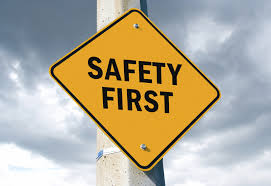TSD Cybersecurity Safe Travel Tips
Planning Ahead
☐ Be aware of connectivity limitations when travelling to Restricted Travel Countries: The current list of Embargoed and Sanctioned Countries can be found here: Sanctions Programs and Country Information | Office of Foreign Assets Control (treasury.gov). TSD does block access from a large number of these countries to protect The School, staff and students. YOU MUST leave your school devices at home if travelling to these countries and YOU MUST notify IT before travelling to a Restricted Travel Country due to TSD IT policy. Keep in mind that IT will not provide tech support on your trip and does ask that you leave your school devices at home when travelling.
☐ Turn off auto connect to Wi-Fi and Bluetooth: Airport and Hotel Wi-Fi is a hotbed for hackers trying to steal your information. Only connect to trusted networks and Bluetooth devices.
☐ Back up your critical data: Contacts, photos, videos and data should be backed up to an encrypted external hard drive or on Google Drive before travel in the event of device or data lost on your trip.
☐ Don’t wait to update apps on your phone, tablet and laptop: Utilize the secure and stable connection you have at The School or home to update devices before you leave.
On Your Trip
At the Airport and on the Plane
☐ If you must use the Airport Wi-Fi, make sure you use a VPN: Some of the top VPN personal products include NordVPN, ExpressVPN and Surfshark for use on your personal device. If you must check school email on your trip, you MUST use a VPN solution on that device, including on your phone. If you need assistance setting up your VPN, reach out to IT. Also confirm you are in fact using the airport Wi-Fi by verifying the SSID (e.g. name of the network) via the airport information counter.
☐ Do not connect to Airplane Wi-Fi: Airplane Wi-Fi is equally risky to airport Wi-Fi. Use your phone in Airplane mode or the provided built-in headrest display for entertainment.
☐ Be careful what you click on: Due to heavy traffic in airports, hotels and public places, travel presents an enhanced opportunity for hackers to steal your information. Only open email from trusted sources and be leery of clicking on suspicious links.
☐ Lock your devices: Use a pin, password or biometrics (thumbprint or facial recognition) to lock your devices when not in use.
☐ Avoid shopping or activities that expose your personal or school information: It’s impossible to expect that you can completely avoid financial transactions on your vacation, but try to avoid exposing financial or personal data exposure by limiting transactions to physical and personal interactions with the hotel, cruise line or a trusted 3rd Party. If you must process a financial transaction, conduct business or provide a business with personal information, make sure you are using a website that begins with “https://”
At the Hotel, Coffee Shop, or in Public
☐ Again, if you must use public or hotel Wi-Fi, make sure you use a VPN to safeguard your information.
☐ Do not disclose public, school or student information in public places.
☐ Guard your mobile devices and belongings: Use the hotel safe for devices and high dollar personal items when not in the room.
☐ Avoid use of publicly accessible computers: Use your personal devices as publicly available computers are often targets for hackers to steal your information and The School’s.
Physical Safety

Getting Around
☐ If walking, identify public buildings along your route where you can take shelter if necessary.
☐If using Ride Share services like Uber or Lyft, always verify the license plate number on the app matches that on the car before getting into a vehicle with a stranger.
Zello
☐ This push-to-talk app allows you to use your phone as a walkie-talkie in the event of communications breakdowns.
GasBuddy
☐ In the event of an evacuation, commuters may need to find fuel quickly and in unfamiliar areas. This app is designed to help you find the nearest open station.
Facebook Safety Check
☐ Allows friends and family to know your location and condition when you check in and helps you keep tabs on others in your area.
Life360
☐ Allows you to set a pre-programmed group text and notify the group automatically as you move from place to place.
ICE Standard
☐ Records vital medical information and puts it on the lock screen of your phone so that first responders and medical personnel can properly assess your condition.
American Red Cross
☐ This app offers information and resources including disaster preparedness and first aid information. Instructions are available in both English and Spanish and are downloadable in the event of network outages.
Google Translate
☐ This app allows you to enter text in English and translates into 132 other languages. It can be used to repeat what you say in English to people in their native language and dialect and conversely can record what someone is saying in their native language and translate to English.
Questions?
Related Articles
Installing Microsoft Authenticator Application
With recent security incidents involving compromised accounts, we recommend staff and teachers download the Microsoft Authenticator app as this is a more secure form of MFA. Additionally, below are other benefits of using the Microsoft Authenticator ...How to Reset Your Password
Reset Password (You Know Your Current Password) Go to the Change Password Portal in Microsoft 365 If you are not already logged in, please log in using your usual school credentials (email and password for logging into your computer, email, etc.) You ...How to Unlock Your Account
If you find yourself locked out of your account, it's likely because you entered the wrong password too many times. You can unlock it through the password reset portal, but you'll need to wait at least 20 minutes first if locked out. Instructions on ...